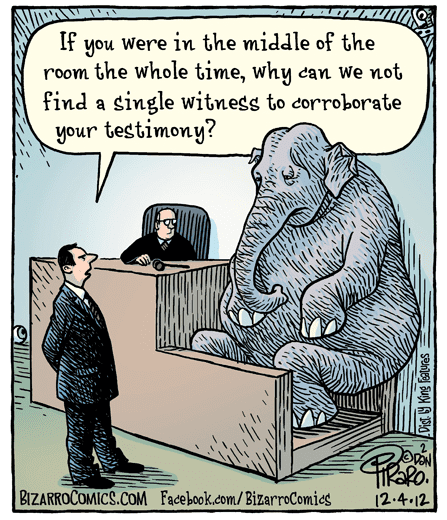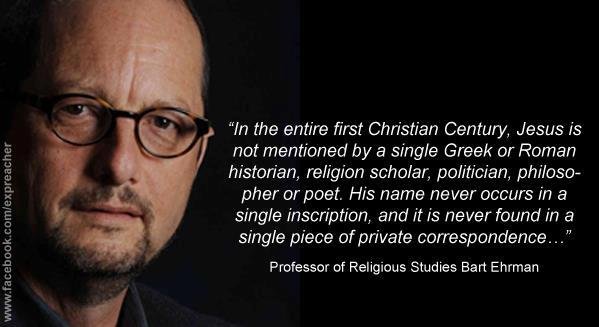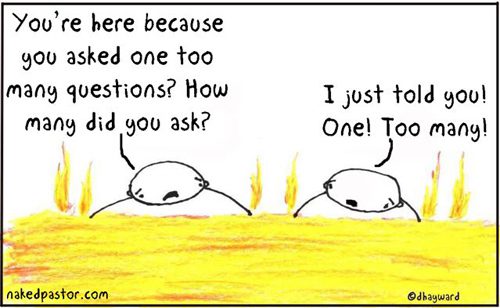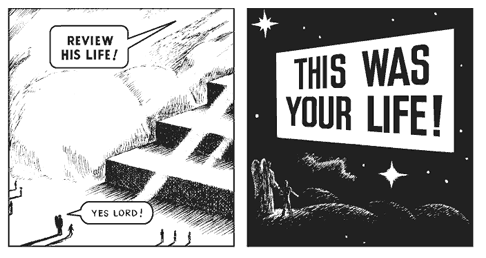
Each of us has a worldview. For Evangelicals, the Bible establishes the parameters of their worldview. God said it, I believe it, and that settles it, the Christian says. Anything that does not fit within the pages of their leather-bound Bible is rejected out-of-hand. Secularists and atheists, while prone to their own delusions, tend to view the world from a rational, materialistic point of view.
Evangelicals Christians view reality this way:
- God has a wonderful plan for their lives and nothing happens that is not part of God’s purpose or plan for their life.
- God uses pain, suffering, financial reversal, sickness, loss, and death to teach them a lesson, get their attention, make them stronger, or punish them for sin.
- For those who love God and are the called according to his purpose, everything in life works out for good.
- God loves them and would never do anything to hurt or harm them.
- It only seems that God is not involved in the day-to-day machinations of his creation. Behind the scenes, in ways that no human can see or comprehend, God is working, moving, changing, correcting, tearing down, and building up.
- God hears every Evangelical’s prayer and answers it according to his will.
Of course, the Evangelical view of reality is for Christians-only. Non-Christians are under the wrath and judgment of God and deserve to be cast into Hell this very moment. Non-Christians may at times enjoy the blessing of God (it rains on the just and unjust), but God reserves his blessings for those who are his children. Non-Christians are the children of the devil.
I have come to see that the Evangelical worldview is delusional. It requires a suspension of reason, a shutting-off of oneself to what can be seen, experienced, and known. It requires the rose-colored glasses of faith, glasses that allow Christians to see a reality that is not visible with human eyes.
What does a secular, atheist view of reality tell us about our world?
- There is no purpose or plan.
- Shit happens.
- Life is a crap shoot and there are no guarantees that it will turn out one way or the other.
- Genetics play a factor in our lives, and far too often condemn us to suffer horrible diseases.
- Being at the wrong place at the wrong time can have catastrophic consequences.
- Human powers outside our lives make decisions over which we have no control. Their decisions can, and do, materially affect our lives, both for good and for bad.
- Talking to ourselves might be helpful psychologically and make us feel better, but we are cognizant of the fact that we are talking to ourselves and not some sort of mythical being.
- Inanimate objects have no power of their own. Kicking the car and swearing at it when it breaks down may make us feel better, but it is just a car.
- We understand, despite what the promoters of the American dream might tell us, that we can’t be anything we want to be. It is not true that anyone can be President and it is not true that we are destined to win American Idol/The Voice/The Sing Off/America’s Got Talent.
- There are things that happen that we can not explain. Secularists and atheists know that there are likely to always be unanswered questions or inexplicable events. They know that luck or being at the right place at the right time is often the sole reason for something happening.
Atheists and secularists know that the world is fraught with danger, and it is amazing that any newborn lives to old age. Christians, on the other hand, know that the world is fraught with danger, but newborns live to old age because God is merciful. God controls the keys to life and death, and it is he alone who kills us at the appointed hour. I wonder, does God pencil in a time next to our name when we are born? How does God determine this? Is there an annual birth lottery where, like the military draft, God pulls death dates for each newborn?
What comfort is there in having a God who controls your life from birth to death? I much prefer a life where I at least have some say in the matter; a life where my choices and decisions materially affect my future; a life where disaster and death lurk in the shadows; a life that is a game, a chance to outrun, for a time, the Grim Reaper.
I have no place in my worldview for letting go and letting God. I have no need of putting my hand in the hand of the man (Jesus) who stilled the waters and calmed the seas. With irreverent, even violent gusto, I refuse to surrender to the will of a mythical deity. I shan’t embrace death because a comic book-bound deity promises me a room in his Trump Hotel in Heaven.
Life is harsh. If we live long enough, it will bruise and bloody us, and ultimately it will kill us. I don’t intend to resign myself to anything. As much as lies within me, I plan on running hard, fighting long, and when I check out of this grand experiment called life, I hope to leave behind a testimony of one who lived life to its fullest.
Bruce Gerencser, 68, lives in rural Northwest Ohio with his wife of 47 years. He and his wife have six grown children and sixteen grandchildren. Bruce pastored Evangelical churches for twenty-five years in Ohio, Texas, and Michigan. Bruce left the ministry in 2005, and in 2008 he left Christianity. Bruce is now a humanist and an atheist.
Your comments are welcome and appreciated. All first-time comments are moderated. Please read the commenting rules before commenting.
You can email Bruce via the Contact Form.









